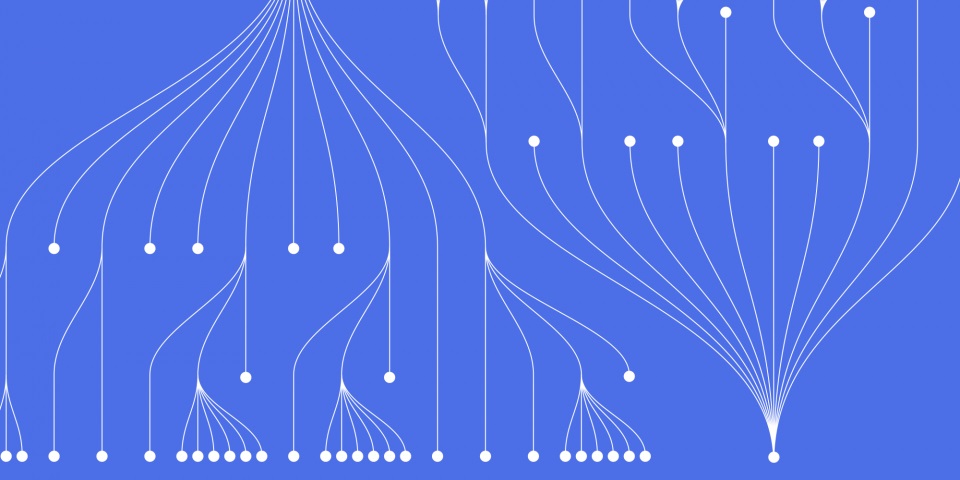
11 January 2019
Cloud computing has entered its second decade and is still growing strongly. Gartner, for example, has forecast the global public cloud services market to be USD 221bn this year, up from USD 154bn in 2017. That’s a 44% growth in just two years. The largest segment of the market is cloud application services (SaaS), with the fastest growing segment being cloud system infrastructure services (IaaS).
The market is, of course, dominated by three cloud services providers:
• AWS (Amazon Web Services) – which is 12 years old and has 62% market share
• Microsoft’s Azure – 7 years old with 20% market share
• GCP (Google Cloud Platform) – 6 years old with 12% market share
All three providers offer high quality services with multiple capabilities, good availability and performance, and high security. For corporates, the most commonly used services are compute, storage, database, networking and content delivery, management tools, development tools and security. Let’s compare AWS, Azure and GCP in more detail, focussing in on the top three most popular services.
Compute
Compute is obviously a computer’s core role, and cloud providers need to be able to scale thousand of nodes very quickly. AWS’s EC2 (Elastic Compute Cloud) configures VMs by using custom or pre-configured AMIs, while Azure uses a Virtual Hard Disk (VHD) for that. Google uses its Compute Engine to deploy and manage Virtual Servers.
When it comes to scaling instances, AWS and Azure use auto scaling, while GCP uses Instance Groups. Instance Families and Types are 7 and 38 respectively with AWS, 4 and 33 with Azure, and 4 and 18 with GCP.
Storage
Data storage is another key service offered by cloud providers, and all three are reliable in this. AWS uses Simple Storage Services (S3) for Object Storage, Azure uses Storage (Block Blob) and Google uses Cloud Storage.
For Archive Storage, AWS uses S3 Infrequent Access, Glacier and Data Archive. Azure uses Storage (Cool) and Storage (Archive). Nearline and Coldine are the Google equivalents.
Automatic Protection and Disaster Recovery is provided by AWS (Disaster Recovery) and Azure (Site Recovery). And Backup is provided by AWS (Object Storage, Cold Archive Storage and Storage Gateway), and Azure (Backup).
Database
AWS, Azure and GCP all provide database service that include Caching, Block Storage, Object Storage, NoSQL (Indexed), NoSQL (Key-value) and Manage Relational Database-as-a-Service. AWS and Azure also offer Database Migration Service, and Manage Data Warehouse (AWS Redshift and Azure SQL Data Warehouse).
Summary
So that’s a quick look at some of the similarities and differences between Amazon Web Services, Azure and Google Cloud Platform. They are the dominant cloud services providers at the moment, and all three provide reliable services at competitive prices.
The provider that’s best suited to your enterprise will, of course, depend on your unique requirements – and a good analysis will help you to make the right decision.
Here at JBI Training, we provide a range of Cloud and DevOps training courses including:
• Amazon Web Services (AWS) intro training course (2 days) where you gain an understanding of what AWS offers – See our AWS intro training course outline
• Azure cloud training course (3 days) where you gain an understanding of what Azure computing offers – See our Azure cloud training course outline
• Google Cloud Platform (3 days) where you learn to develop cloud-based applications on GCP – See our Google Cloud Platform training course outline

CONTACT
+44 (0)20 8446 7555
Copyright © 2025 JBI Training. All Rights Reserved.
JB International Training Ltd - Company Registration Number: 08458005
Registered Address: Wohl Enterprise Hub, 2B Redbourne Avenue, London, N3 2BS
Modern Slavery Statement & Corporate Policies | Terms & Conditions | Contact Us
POPULAR
AI training courses CoPilot training course
Threat modelling training course Python for data analysts training course
Power BI training course Machine Learning training course
Spring Boot Microservices training course Terraform training course